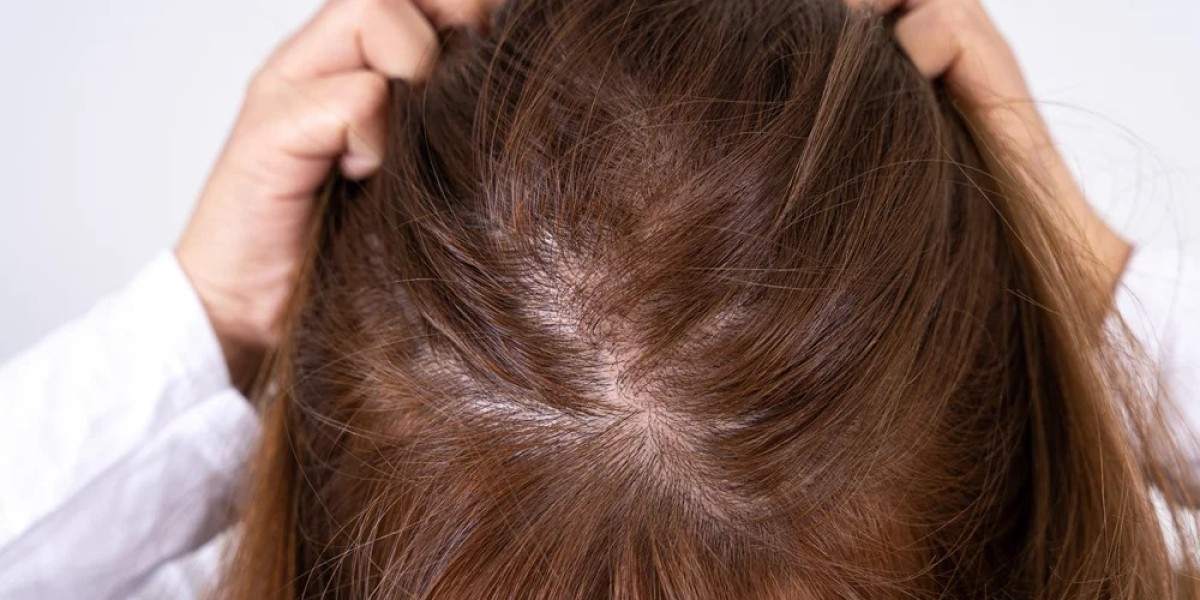Alopecia Areata is an autoimmune condition that leads to unpredictable hair loss, affecting individuals’ confidence and well-being. Among the many therapeutic options available, corticosteroids remain one of the most commonly prescribed treatments due to their potent anti-inflammatory and immunosuppressive effects. For those seeking Alopecia areata treatment in Dubai(علاج الثعلبة البقعية في دبي), corticosteroids continue to play a vital role in managing the condition effectively. This article explores how corticosteroids work, their applications, benefits, and considerations in treating Alopecia Areata.
What Are Corticosteroids?:
Corticosteroids are synthetic drugs that mimic hormones naturally produced by the adrenal glands. They help reduce inflammation and suppress the immune system, which makes them useful in various autoimmune and inflammatory conditions.
Key Characteristics of Corticosteroids:
Powerful anti-inflammatory agents
Immunosuppressive properties to control immune response
Available in topical, injectable, and oral forms
Their versatility allows dermatologists to tailor treatments for different severities of Alopecia Areata.
Why Corticosteroids Are Effective in Alopecia Areata:
Since Alopecia Areata results from the immune system attacking hair follicles, corticosteroids help by calming this misguided immune response.
How Corticosteroids Work:
Inhibit inflammatory cytokines and immune cells attacking hair follicles
Reduce swelling and redness around affected areas
Promote transition of hair follicles from the resting phase to the growth phase
By interrupting the autoimmune attack, corticosteroids can enable hair regrowth in many cases.
Forms of Corticosteroid Treatment for Alopecia Areata:
Dermatologists may use corticosteroids in several forms depending on the extent and severity of hair loss.
Topical Corticosteroids:
Applied directly to the scalp as creams, lotions, or foams
Suitable for mild or patchy Alopecia Areata
Usually safe with minimal systemic absorption
Intralesional Corticosteroid Injections:
Administered via injections directly into bald patches
Provide targeted immunosuppression with faster results
Often considered the gold standard for limited patchy hair loss
Oral Corticosteroids:
Systemic treatment used for extensive or rapidly progressive cases
Suppress immune activity throughout the body
Reserved for severe Alopecia Areata due to potential side effects
Benefits of Corticosteroid Therapy:
Corticosteroids offer several advantages that make them a cornerstone in Alopecia Areata management.
Key Benefits Include:
Rapid reduction of inflammation and immune attack
Effective in stimulating hair regrowth in many patients
Versatile application methods to suit different severities
Generally accessible and widely used in dermatology clinics
Their ability to bring visible improvement often boosts patient morale.
Limitations and Side Effects to Consider:
Despite their effectiveness, corticosteroids are not without risks and limitations, especially with prolonged use.
Common Side Effects by Form:
Topical: Skin thinning, irritation, and discoloration with long-term use
Intralesional: Temporary pain at injection site, skin atrophy, and pigmentation changes
Oral: Weight gain, mood swings, increased infection risk, osteoporosis, and adrenal suppression
Treatment Limitations:
Hair loss may recur after stopping therapy
Not effective in all patients, especially in chronic or extensive disease
Requires careful dosing and monitoring to minimize adverse effects
Patients should discuss these risks thoroughly with their dermatologists.
Combining Corticosteroids with Other Treatments:
To improve outcomes and reduce side effects, corticosteroids are often combined with other therapies.
Common Combination Strategies:
Topical immunotherapy: To boost immune modulation alongside steroids
Minoxidil: To stimulate hair follicles and enhance regrowth
JAK inhibitors: For severe cases unresponsive to steroids alone
Nutritional supplements: To support hair health
This multi-modal approach can increase the chances of sustained improvement.
Monitoring and Follow-Up During Corticosteroid Therapy:
Close medical supervision ensures safety and treatment efficacy.
Recommended Monitoring Practices:
Regular scalp examinations to assess hair regrowth and skin condition
Blood tests when oral steroids are prescribed to monitor systemic effects
Adjustments in treatment frequency or dosage based on response and side effects
Psychological support to manage emotional impacts of Alopecia Areata
Regular follow-ups help tailor the treatment plan dynamically.
Why Choose Alopecia Areata Treatment in Dubai:
Dubai is known for its advanced healthcare infrastructure and experienced dermatologists specializing in hair disorders.
Advantages of Treatment in Dubai:
Access to cutting-edge diagnostic tools and therapies
Multidisciplinary teams offering personalized care plans
State-of-the-art clinics with international standards
Convenient location for both residents and medical tourists
Patients opting for Alopecia areata treatment (علاج الثعلبة البقعية) benefit from these comprehensive services.
Preparing for Corticosteroid Treatment:
Proper preparation maximizes the success and safety of corticosteroid therapy.
Preparation Tips:
Provide a complete medical history including allergies and previous treatments
Discuss lifestyle factors that might affect treatment outcomes
Understand the application method and potential side effects
Commit to follow-up visits and recommended monitoring
Informed patients are better equipped to manage their treatment journey.
Conclusion:
Corticosteroids remain a foundational treatment for Alopecia Areata due to their powerful ability to reduce immune-mediated inflammation and stimulate hair regrowth. Whether applied topically, injected locally, or taken orally, these drugs offer hope for many patients struggling with hair loss. However, their use requires careful balancing of benefits and potential risks, under expert dermatological supervision. For those seeking specialized care, Alopecia areata treatment in Dubai provides access to skilled professionals who can guide you through safe and effective corticosteroid therapy as part of a comprehensive treatment plan.






